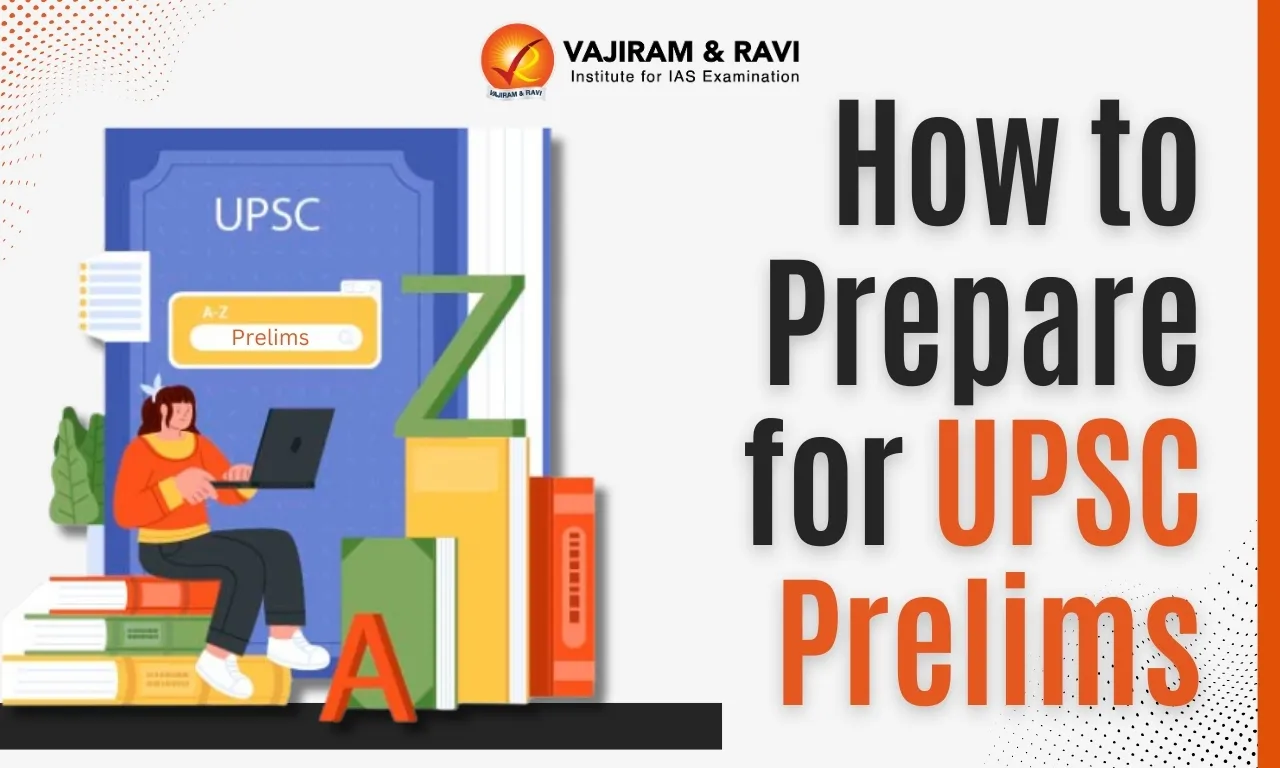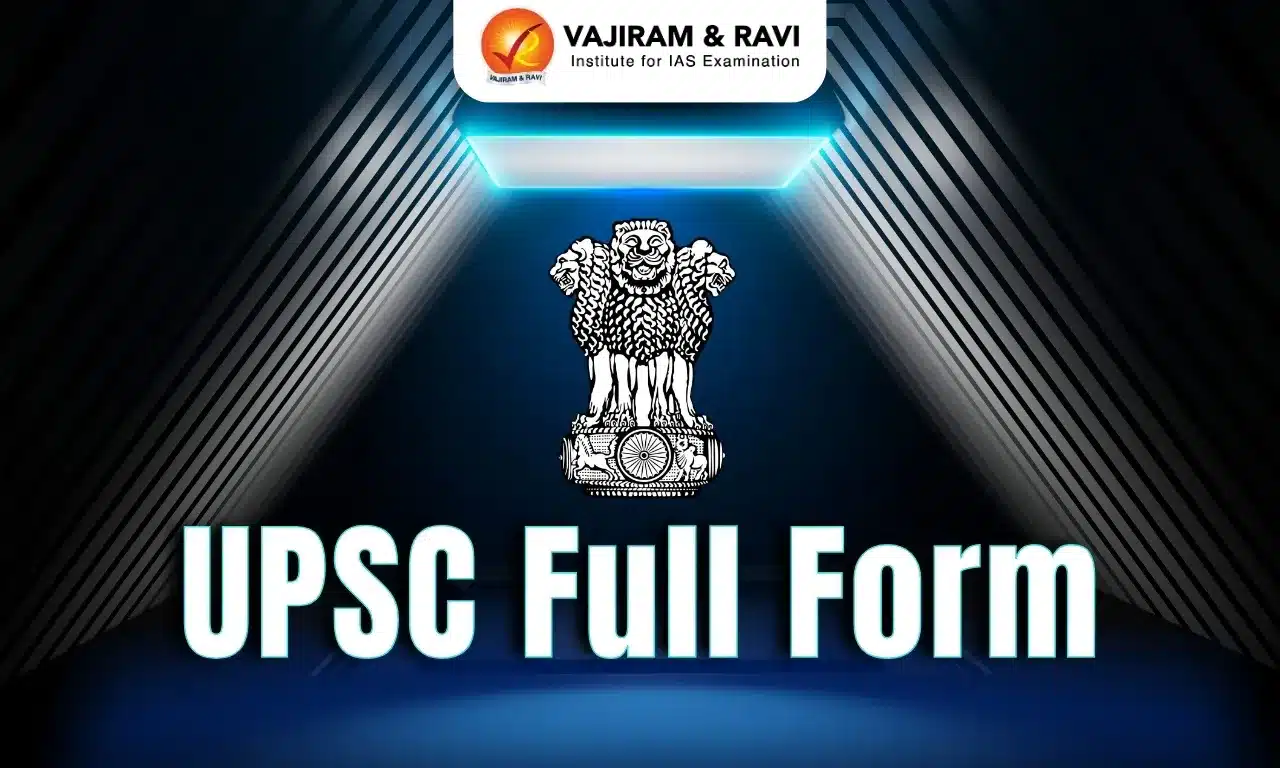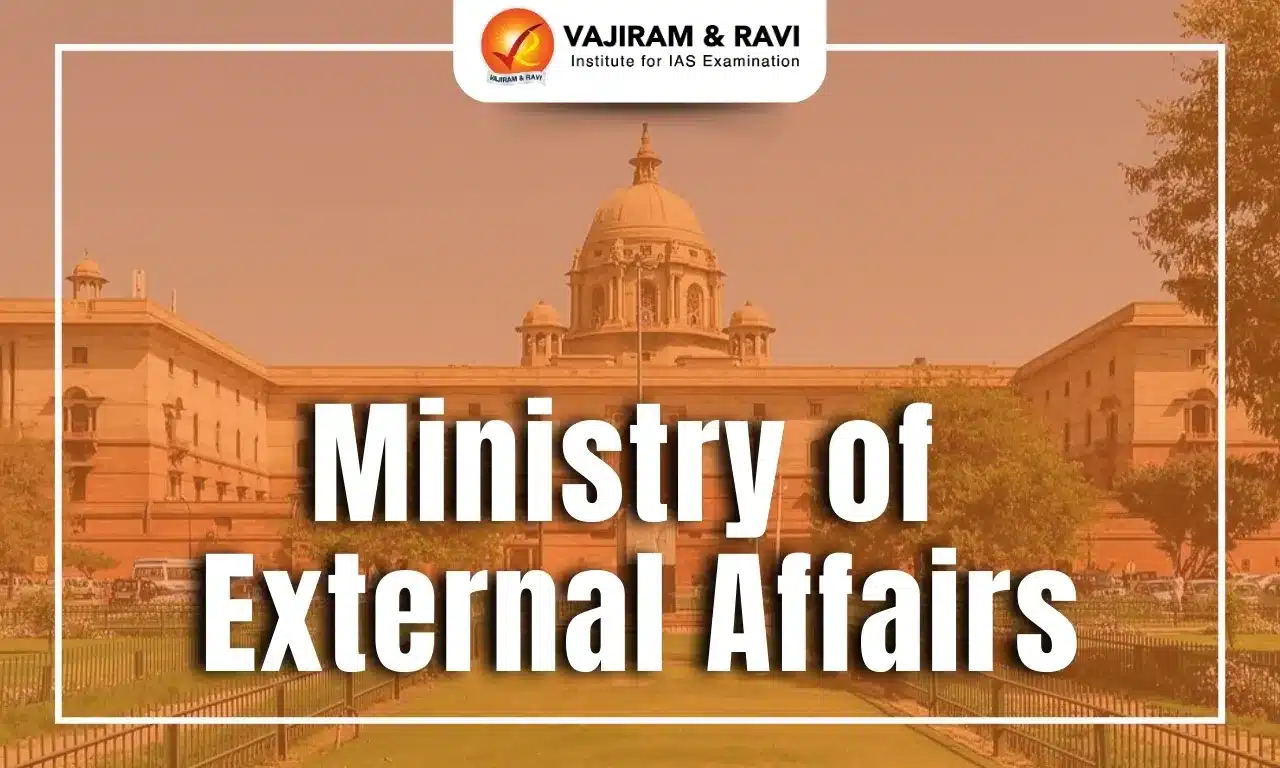Preparing for the UPSC Preliminary Examination requires a lot of hard work, dedication and effort. The UPSC Prelims examination is the first step on the arduous journey to becoming a civil servant. This crucial phase tests your knowledge, analytical skills, and adaptability to diverse subjects. To navigate this challenge, a well-structured and strategic approach is essential. Let’s explore a step-by-step guide on how to prepare for UPSC Prelims effectively.
Read: Last 1 Month Preparation for UPSC Prelims
Step-By-Step Guide to Prepare for UPSC Prelims
The UPSC Prelims Examination is a long and demanding exam, so it is important to start preparing early. This will give you enough time to cover the entire syllabus and to practise your exam skills. The first step to prepare for UPSC Prelims is to make a blueprint that outlines what you will study and when you will study it. This will help you stay organised and on track.
Understand the UPSC Prelims Syllabus and Exam Pattern
The Preliminary Examination is objective in nature, and the syllabus for preparing for UPSC Prelims is very vast.
Syllabus for UPSC Prelims General Studies Paper -1:
- Current affairs of National and International Importance
- Ancient, Medieval and Modern History
- Indian Polity and Governance
- Physical and Indian Geography
- Environment and Ecology
- Art & Culture
- Science and Technology
- Economics and Social Development
- Social Issues
Syllabus for UPSC Prelims General Studies Paper-2:
- Basic Numeracy
- Logical Reasoning
- Comprehension and decision-making
| General Studies Paper-1 | 100 Questions | 200 Marks |
| General Studies Paper-2 (CSAT) | 80 Questions | 200 Marks |
Build a Strong Foundation
To prepare for the UPSC Preliminary examination, it is very important to begin your general studies preparation by studying the NCERT Books. They help you develop a strong base for GS before you move on to the standard books for UPSC Preparation. Dedicate your day to cover at least two subjects in a day, along with current affairs, to prepare for UPSC Prelims.
Integrate Current Affairs in your Preparation
When preparing for UPSC Prelims, current affairs preparation cannot be neglected. Read the newspaper daily, and you can also refer to a daily Newspaper Analysis video to cover the Newspaper properly. Read a current affairs monthly magazine at the end of the month that will help you compile your current affairs notes from various sources like The Hindu, Indian Express, PIB, Yojana and Kurukshetra magazine. Many students make the mistake of picking up current affairs booklets in the last few weeks, hoping to finish. The reality is that there will be an overload of information, and your memory may not be able to cope up with the sudden load. So spend a few hours every day from now on current affairs and make sure again to revise regularly.
Join a Prelims Test Series
Joining a Prelims Test Series will help you fill in the gaps in your preparation. The more Prelims Test papers that you practise, the more confident you become in your UPSC Prelims Preparation. Regularly taking mock tests will help you familiarise yourself with the exam environment, manage time efficiently, and gauge your progress. Analyse your performance to identify weak areas and work on them.
Practise the UPSC Prelims Previous Year Question Papers
In recent years, the UPSC Prelims exam has become more conceptual in nature, especially in the core subjects. This means that you need to have a good understanding of the concepts rather than just memorising facts and figures. To prepare for this, it is important to analyse the previous year’s question papers. This will give you an idea of the kind of questions that are being asked and the level of difficulty.
Identify Facts vs. Concepts
For example, in the Polity section, you do not need to memorise the names of all the past Presidents and Election Commissioners. However, you should have a good understanding of the basic concepts of the Indian Constitution and the political system of India.
The Economy section is now highly conceptual and can be a high-scoring section if you prepare well. So, it is important to focus on understanding the basic economic concepts and theories.
It is also important to make an assessment of all the subjects that you are going to take. This will help you to identify your strengths and weaknesses and to focus your preparation on the areas where you need the most improvement.
If your preparation is not aligned with the exam pattern, then you will only be wasting your time. So, it is important to make sure that you are studying the right things and that you are using the right resources.
Revise, Revise and Revise
No matter what subject or topic you are studying, it is important to revise and remember it so that you do not lose marks in those areas. Without proper revision, you are likely to carry more confusion into the exam hall and end up with a higher negative score, which will negate all the hard work you have done.
Last updated on July, 2025
→ UPSC Notification 2025 was released on 22nd January 2025.
→ UPSC Prelims Result 2025 is out now for the CSE held on 25 May 2025.
→ UPSC Prelims Question Paper 2025 and Unofficial Prelims Answer Key 2025 are available now.
→ UPSC Calendar 2026 is released on 15th May, 2025.
→ The UPSC Vacancy 2025 were released 1129, out of which 979 were for UPSC CSE and remaining 150 are for UPSC IFoS.
→ UPSC Mains 2025 will be conducted on 22nd August 2025.
→ UPSC Prelims 2026 will be conducted on 24th May, 2026 & UPSC Mains 2026 will be conducted on 21st August 2026.
→ The UPSC Selection Process is of 3 stages-Prelims, Mains and Interview.
→ UPSC Result 2024 is released with latest UPSC Marksheet 2024. Check Now!
→ UPSC Toppers List 2024 is released now. Shakti Dubey is UPSC AIR 1 2024 Topper.
→ Also check Best IAS Coaching in Delhi
FAQs on UPSC Prelims Preparation
Q1. How to start my preparation for UPSC Prelims?+
Q2. How many papers are there in UPSC Prelims?+
Q3. What is the syllabus for the UPSC Prelims?+
Q4. Do Prelims scores count as final scores?+
Q5. What will be the cutoff marks to qualify UPSC Prelims?+















